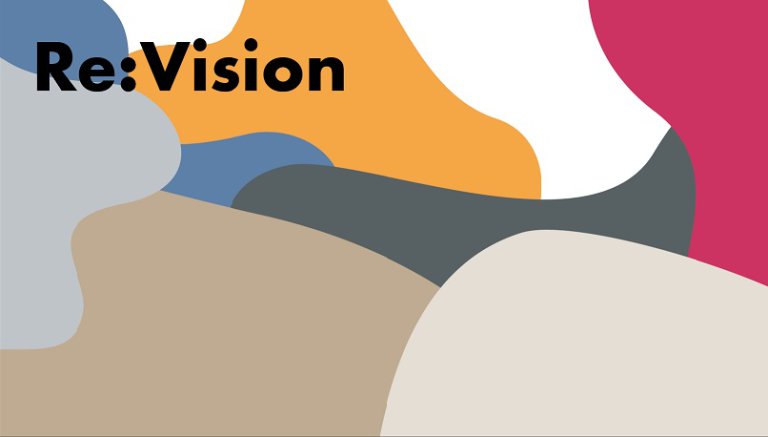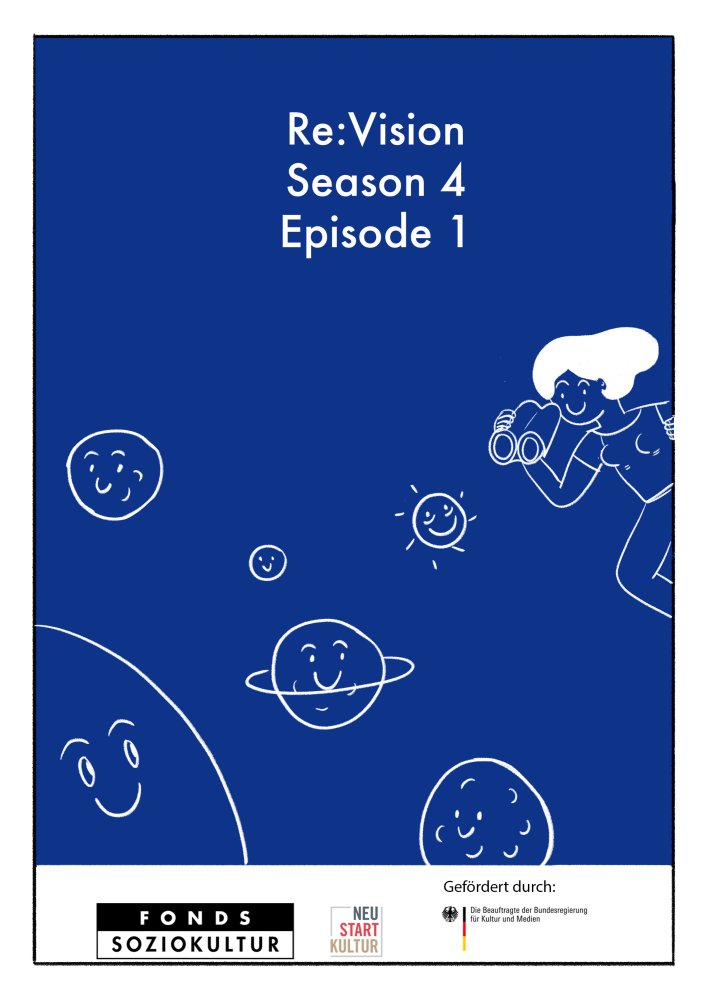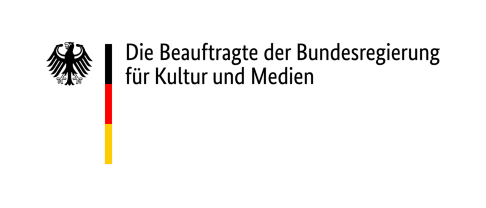Re:Vision Season 4 - Ta3, Diversität + Inklusion + Vielfalt (Diversity + Inclusion + Variety)

Season 4 of the Re:Vision series of workshops accompanied project coordinators who had been awarded grants within the scope of the Ta3 topic-specific call for applications, “Diversität + Inklusion + Vielfalt”, for the NEUSTART KULTUR special programme. 83 project coordinators associated with the 111 projects approved registered to participate in the workshops. With two editions of each episode it was possible to offer a total of 10 editions, each with 42 participants.
See the programme booklet for further information on the topics and speakers. COMICS and PODCASTS present the highlights of the episodes plus the interviews which Fonds Soziokultur staff conducted with each guest speaker.
Programme booklet
Monday edition
Friday edition
COMICS
Episode 1: Opportunity
with Sumukhi Suresh (India)
Opportunities are everywhere – we create them; offer them; want, need and deserve them. Sumukhi Suresh described to our participants her journey from being a stand-up comedian to the star of an award-winning show on Amazon Prime. Sumukhi explained how, as someone who doesn’t look like an “industry star”, she created her own opportunities and her determination to create opportunities for other people in the creative industry. In this episode our project coordinators considered ways in which they could use their projects to create opportunities for themselves and others.
Episode 2: Intuition
with Nancy Adimora (United Kingdom)
When it comes to work for and with a variety of communities, we have a wealth of options. Realising all of our ideas can, however, be difficult. Doing things the way we have always done them can often appear to be the easiest, fastest and cheapest option. In this episode Nancy Adimora talked about the importance of owning change. She explained how to make our own content more accessible to communities and how, over time, this can become the ‘new normal’. This episode helped our project coordinators to identify possible challenges which may have to be overcome on the path to greater inclusion.
Episode 3: Listening
with Alastair Somerville (United Kingdom)
Should our efforts to achieve greater diversity include doing things for or with our communities? The corresponding transitions are fluid and often confusing. Alastair Somerville is an advocate of applying the “user-centred design” concept in all areas. Our participants took a more in-depth look at the sensory and emotional design of their projects, learning how small changes can make content truly inclusive. The episode helped provide an understanding of how the choice of technology and way of using language can make projects more inclusive for people of all abilities.
Episode 4: Systems
with Abigail Norville (Netherlands)
Building on Episode 2, the idea that change is difficult, particularly in the context of projects which include a variety of interest groups, was further explored. Abigail Norville reported on an innovative experiment in the field of inclusion, realised for Rotterdam’s municipal council. This episode discussed the fundamental issues which we must all address when trying to become more inclusive. Do we need to change our methods of work? How do we deal with people who don’t share our objectives?
Episode 5: Platforms
with Wana Udobang (Nigeria)
In the first four episodes our project coordinators discussed a number of inclusion-related issues, from seeing opportunities with new eyes to facilitating system changes. From collaboration with their communities to experimenting with new ways of working. At the end of the day, however, it is we as individuals who bear the responsibility for shaping such new ideas. Wana Udobang is an artist and entrepreneur who manages a pan-African cultural programme. In this episode she explained how we, as individuals, can combine idealism with pragmatism to generate genuine change. The episode helped our participants turn their ideas and inspiration into reality by taking a first small step.








